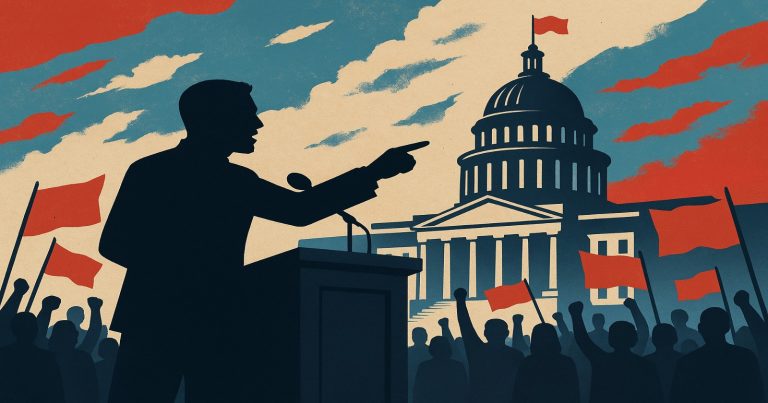The political environment shows influence on businesses and their operations from political factors, government policies, and laws. The factors constituting the political environment comprise stability in the political structure of a country, government policies, tax policies, and international relations. The political environment is, therefore, very important for any business as it can heavily influence strategies, operations, and profitability of any business organization.
What is the Political Environment?
At its most fundamental, the political environment is composed of external variables in the political system of a country which affect business activities. For example, the political environment includes government intervention, political stability and legal regulations, and it comprises several elements of the political climate under which businesses operate. Generally, the political environment creates a prescriptive framework that intricately regulates a business’s internal and external operations and environment. Thus, the political environment can lead business growth or impede such growth in return.
Investment in a steady political environment is encouraged; on the contrary, the political uncertainty causes an uneven platform for consumers, meaning that they will react unfavorably to business strategies and profitability. Change of governments or policies can rewrite the rules under which businesses operate. It is key for businesses to understand where the political environment stands to foresee risk and key decision-making.

Role of Political Environment in Business
The political environment plays a pivotal role in shaping the business landscape. Understanding its impact is crucial for companies that want to operate efficiently and mitigate risks. Here’s how the political environment influences business:
Government Policies and Regulations
- Taxation and Fiscal Policies: Governments set tax rates that can directly affect a company’s profitability. For example, higher taxes may reduce profit margins, while lower taxes may encourage expansion and investment.
- Trade Policies: Policies such as tariffs, import/export restrictions, and free trade agreements can significantly affect the costs and opportunities for businesses, particularly those operating in international markets.
- Regulations on Business Practices: Governments often impose regulations that businesses must follow. These include labor laws, environmental regulations, and health and safety standards that ensure businesses operate in a socially responsible manner.
Political Stability
- Economic Stability: A politically stable country tends to have a stable economy, which encourages business growth. Political turmoil can lead to economic disruptions, causing uncertainty in the market and potentially hindering business operations.
- Investor Confidence: Investors prefer stable political environments as they provide a sense of security and predictability. Instability or frequent leadership changes can deter investment.
Government Intervention and Support
- Subsidies and Grants: Governments often provide financial support to certain industries through subsidies or grants. Businesses in these industries may benefit from such support.
- Public Infrastructure and Development: Government investment in public infrastructure, such as transportation and communication networks, directly impacts businesses by reducing operational costs and improving efficiency.
The political legal environment is an essential factor that businesses must take into account when planning their strategies. It includes laws and regulations that govern business activities and the government’s role in influencing these laws. For example, the government’s stance on intellectual property laws, competition laws, and contract enforcement can affect business operations both locally and internationally.
Impact of Political Environment on Business
The political environment of business has far-reaching implications for businesses of all sizes. Companies must understand the political climate to anticipate changes that might affect their operations. Below are some of the key impacts:
Regulatory Impact on Operations
- Compliance Costs: Companies may face additional costs related to compliance with government regulations. These costs could include expenditures for legal consultations, environmental protections, or labor laws compliance.
- Barriers to Entry: In some markets, political factors may create barriers to entry for new businesses. Government regulations or tariffs can prevent foreign companies from entering the market, limiting competition.
Risk of Political Instability
- Impact on Investment: Political instability or sudden changes in government policies can make businesses hesitate to invest in certain countries. For example, governments that frequently change laws may create an unpredictable environment for investment.
- Impact on Foreign Relations: Political decisions made by a government can influence a business’s relationships with foreign governments, potentially leading to restrictions on trade or international operations.
Changes in Consumer Behavior
- Political Events: Political events such as elections, strikes, or government policy changes can alter consumer sentiment. Businesses must be prepared to adapt to changes in consumer preferences resulting from political shifts.
- Government Influence on Consumer Choices: Government policies can also directly affect consumer behavior. For example, subsidies for electric vehicles can encourage consumers to buy them, while restrictions on harmful goods can decrease consumer demand.
Influence on Strategic Planning
- Adjusting to Legal Changes: Businesses must continuously adjust their strategies to comply with changing laws, such as new taxes or environmental regulations.
- Political Considerations in Mergers and Acquisitions: Businesses involved in mergers and acquisitions need to understand the political environment, as changes in government policies could impact the success of such deals.
Political Environment FAQs
What is the political environment?
The political environment refers to the political factors, government policies, and regulations that influence business operations. It includes aspects such as government stability, trade policies, and legal regulations.
What is the political and legal environment of business?
The political and legal environment of business encompasses the government’s role in regulating business practices, including laws on taxes, trade, labor, and competition. It ensures businesses operate within a framework of rules and regulations.
How does the political environment impact business?
The political environment affects business by influencing government policies, regulations, taxation, and trade relations. Political stability promotes investment, while instability can disrupt business operations.
What are the critical elements of the political environment?
The critical elements of the political environment include government stability, political ideologies, trade policies, regulations, taxation, and the legal framework that governs business activities.
What is the importance of the political environment?
The importance of the political environment lies in its ability to shape the business landscape. It affects everything from taxation and trade policies to consumer behavior and investment opportunities.



